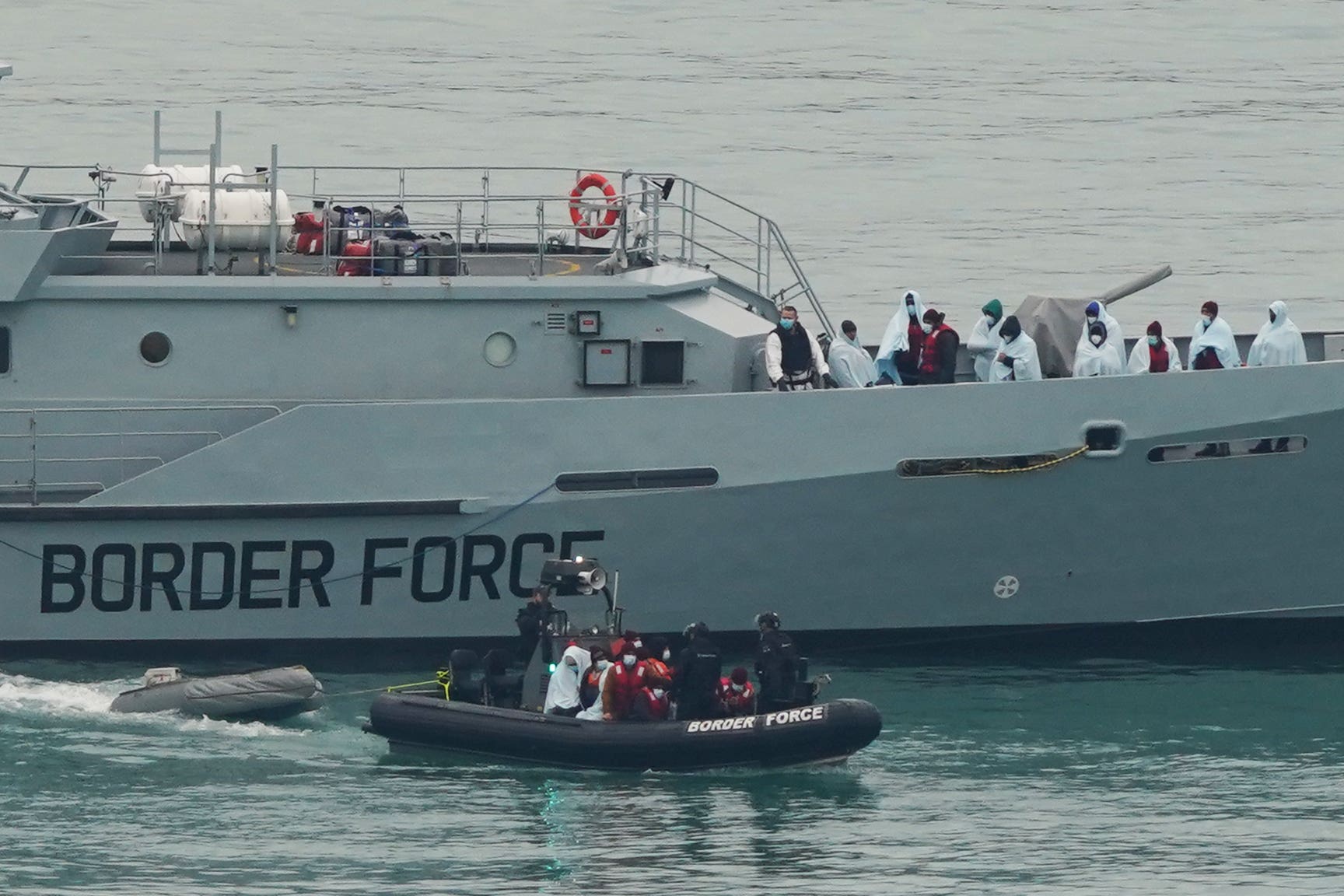Relatives of dinghy victims demand politicians end ‘poisonous rhetoric’
Family members made their comments in a letter to the Prime Minister on the first anniversary of the tragedy in the English Channel.

Your support helps us to tell the story
From reproductive rights to climate change to Big Tech, The Independent is on the ground when the story is developing. Whether it's investigating the financials of Elon Musk's pro-Trump PAC or producing our latest documentary, 'The A Word', which shines a light on the American women fighting for reproductive rights, we know how important it is to parse out the facts from the messaging.
At such a critical moment in US history, we need reporters on the ground. Your donation allows us to keep sending journalists to speak to both sides of the story.
The Independent is trusted by Americans across the entire political spectrum. And unlike many other quality news outlets, we choose not to lock Americans out of our reporting and analysis with paywalls. We believe quality journalism should be available to everyone, paid for by those who can afford it.
Your support makes all the difference.Sixteen relatives of the asylum seekers who died when their dinghy capsized in the English Channel have demanded the Prime Minister makes changes to prevent future tragedies.
In a letter to Rishi Sunak, they called for politicians – including Home Secretary Suella Braverman – to end their “poisonous rhetoric” which they said “breeds fear and division”.
On the first anniversary of their deaths on Thursday, their demands came as an official report found their inflatable had reached UK waters and amid concerns French rescue services had failed to respond adequately.
We demand answers to why French and British authorities failed desperate people who came asking for help
Around 34 people aboard the small inflatable left a beach near Dunkirk in France before they got into difficulty. A French fishing vessel reported seeing bodies in the water.
There were two survivors and 27 bodies recovered from the sea, but the death toll is believed to be higher.
The relatives’ letter, also signed by trade unions and groups including Care4Calais, Channel Rescue and Safe Passage, said that despite distress calls from the dinghy “no-one came”.
We demand an end to the poisonous rhetoric used by our politicians – calling innocent refugees ‘illegal migrants’ or, worse, ‘an invasion’ – which breeds fear and division
“The French told them they were in British waters and the British told them they were in French waters,” they wrote, adding “we demand justice”.
“We demand answers to why French and British authorities failed desperate people who came asking for help,” they wrote.
“We demand an end to the poisonous rhetoric used by our politicians – calling innocent refugees ‘illegal migrants’ or, worse, ‘an invasion’ – which breeds fear and division.
“We call for safe passage to allow these refugees to claim asylum in Britain without risking their lives in the Channel.”
Their warnings about language come after Ms Braverman was widely condemned for claiming in the House of Commons that there was an “invasion on our southern coast” as she came under pressure over small boat crossings and conditions in accommodation in the UK.
We demand that the division and fear of anti-migrant rhetoric used by political leaders is replaced with the kindness, compassion and empathy that people and communities across Britain show every day to refugees
Twenty-one men, seven women, including one who was pregnant, and three adolescents died, according to the letter.
The families wrote: “We demand that the division and fear of anti-migrant rhetoric used by political leaders is replaced with the kindness, compassion and empathy that people and communities across Britain show every day to refugees.”
British investigators did not initially look into the incident that appalled the nation because the boat was recovered in French waters.
But the interim findings of the Marine Accident Investigation Branch (MAIB) released on Thursday confirmed that “some of the events relating to this loss of life had occurred inside UK waters”.
The British search and rescue response is being investigated.
“Along with many other migrants that were transiting the Dover Strait that night, some of those on board the boat made phone calls to alert Maritime Rescue Co-ordination Centres (MRCC) ashore about their situation,” the report said.
Staff in Dover dispatched “surface and air assets to search the area where the distressed migrants were assessed to be” but they were not found.
Meanwhile, the Le Monde newspaper in France reported a leaked police investigation appearing to suggest that the French coastguard had not sent help to the scene despite a UK request.
The BBC also said transcripts of emergency calls made to the French coastguard suggested struggling passengers were repeatedly told to call British emergency services despite being in French waters when they first called for help.